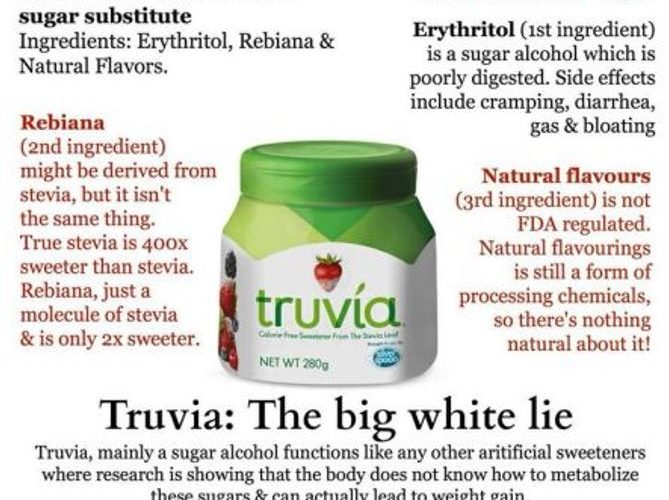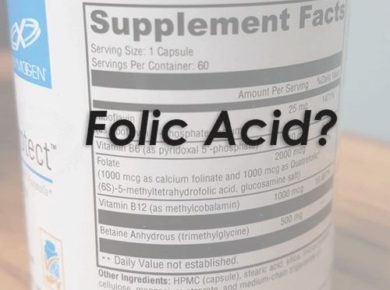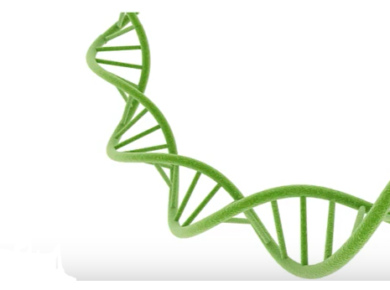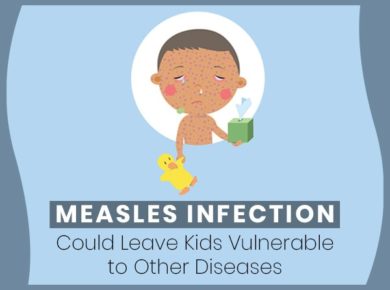Truvia is an insecticide. It kills bugs.
When people ask me if it is a good sugar substitute, the answer is simple: NO!
Truvia sweetener is made from about 99.5% erythritol (a sugar alcohol), and 0.5% rebiana, an extract from the stevia plant.
A very concerning new study was just published in the journal
PLOS ONE titled, Erythritol, a Non-Nutritive Sugar Alcohol Sweetener
and the Main Component of Truvia, Is a Palatable Ingested Insecticide.
The authors
wanted to see if this sweetener was safe for consumption. They used fruit flies
as a way to test this hypothesis.
The study found that while fruit flies normally live between
39 and 51 days, those that ate the Truvia ingredient erythritol died in
less than a week.
Truvia, which
is made by food giant Cargill, is therefore a potent insecticide that
kills fruit flies!
It may not be surprising because erythritol is made from yeast fed genetically modified corn derivatives. And we know that GMO-corn is a poison.
Interestingly, Cargill was forced to settle a class action
lawsuit last year for labeling Truvia “natural” when it’s actually
made from a fermentation process whereby yeast are fed GMO corn
maltodextrin.
Even CBS heard of this statement that Truvia is an insecticide:
“Erythritol,
the main component of the sweetener Truvia, has a new, unexpected
application — it may be used as an insecticide. …Researchers found that
fruit flies fed with food that included erythritol or the erythritol-containing
sweetener Truvia died much sooner than flies fed with food containing other
types of sweeteners.
“The more you get [fruit flies] to consume erythritol, the faster they
die,” Sean O’Donnell, a professor of biology at Drexel University in
Philadelphia, told CBS News.
The
abstract of the published study concludes, “Here we show that Erythritol,
a non-nutritive sugar alcohol, was toxic to the fruit fly Drosophila
melanogaster.”
This scary thing is that no other
sweetener killed the fruit flies. Indeed, fruit flies were also subjected to
feeding tests with sucrose and corn syrup, but those sweeteners didn’t kill
them.
Erythritol
also interfered with the flies’ motor coordination, as stated in the study text:
…adult
flies raised on food containing Truvia displayed aberrant motor control prior
to death. We therefore assayed motor reflex behavior through climbing assays.
Flies raised on food containing Truvia showed a significantly decreased ability
to climb.
Researchers
were also able to determine that stevia was not the cause of the problem. They
also tested Purevia and found it was safe for fruit flies.
Only erythritol, the main component of Truvia, replicated the
toxic effects on fruit flies.
Erythritol
also exhibited a dose-dependent death response, meaning the more that was
consumed by the flies, the more quickly they died.
We can see that the FDA does not care
about the American health. They declared that Truvia is safe for human consumption
when in fact, it is not.
Most people
believe sugar alcohols are safe to consume, and perhaps they’re right, but we
do not really know.
The fact that millions of people consume them does not guarantee they are safe. Medications are used by millions of people, but it is the third leading cause of death in the country.
There are questions that we need to answer.
Is there some unknown contaminant sin erythritol that’s causing these toxic effects? Or maybe it’s the GMO connection?
That could be the answer because most erythritol comes from genetically modified corn.
Is Truvia toxic only to insects? Of perhaps also humans?
We do not know. We just known that insects die once they consume
it.
At this moment, from all the evidence we have, I do not recommend Truvia. There are other options for sweeteners like stevia, monk fruit, or natural sugars like honey or coconut sugar.






